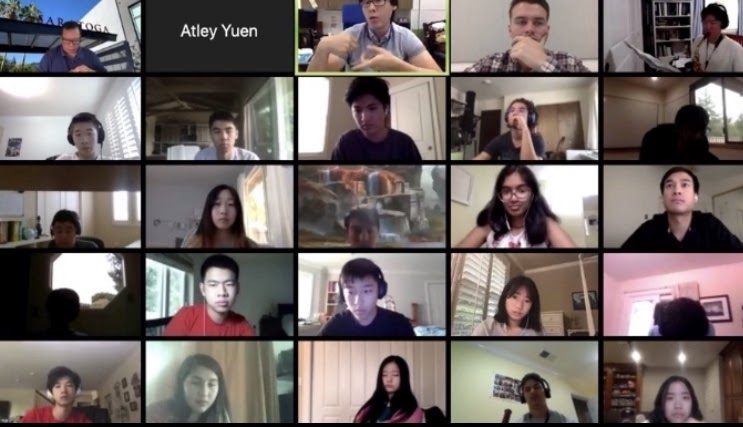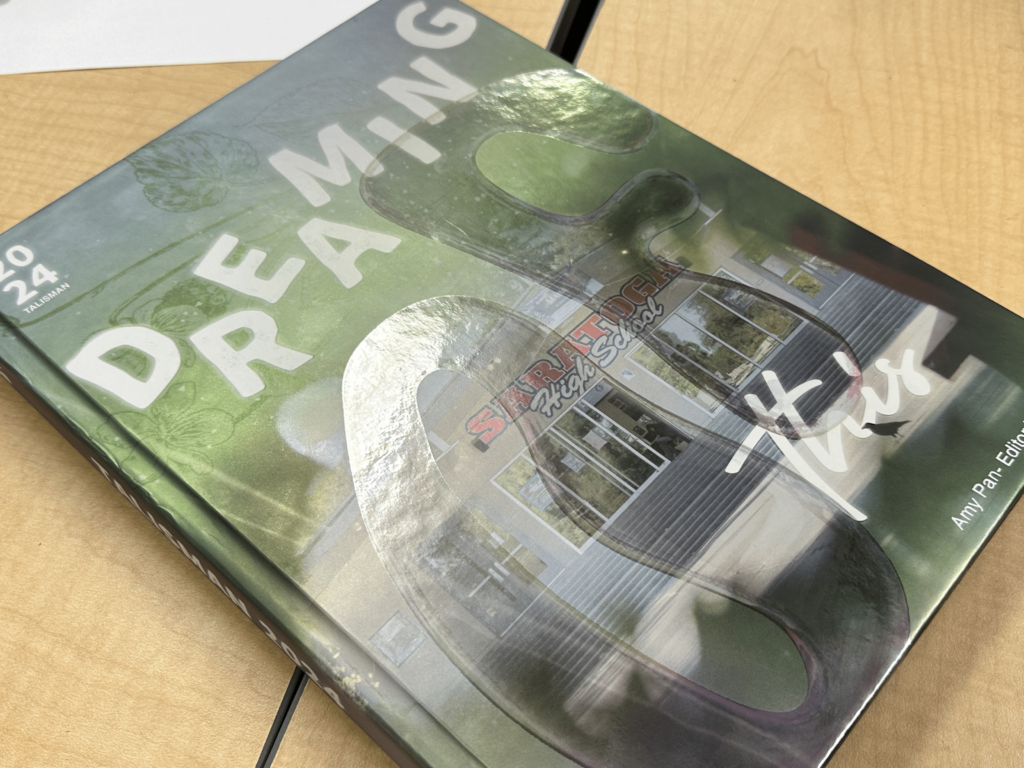After several tedious takes, senior orchestra head manager Isaiah Chung finally sent in his solo recording of the violin. Eventually, this recording, edited to be combined with many of his peers’ similar performances, will seamlessly transform into a full stay-at-home ensemble.
This is as close as orchestra members and other music students will get to performing together this fall during this unprecedented time.
As a result of school closing due to the COVID-19 pandemic, both teachers and students have been finding their own ways to cope with the new online synchronous model.
“Online learning has forced everyone to be by themselves, and it’s much harder to work together as an ensemble,” Chung said. “Under the circumstances of COVID-19, having new staff makes organization much more difficult because while the events may be new for the students, at least they are familiar with one another, unlike the staff.”
Following Michael Boitz’s one-semester departure for paternity leave, orchestra substitute director Norman Dea’s main focus has been maintaining the spirit of live, collaborative rehearsals.
In order to replicate the ensemble experience, the orchestra utilizes editing software such as Upbeat Music, which fuses video conferencing software with recorded music pieces to recreate an in-person ensemble. Dea is starting the year with a composition unit, teaching students how to use music apps to record ensembles remotely.
Dea plans to critique performances through virtual music festival experiences, including a virtual orchestra performance in December. He added that he hopes to work on skill-building in terms of technique, instrument range and the methodology involved with ensemble literature selection.
In addition to rehearsals, orchestra classes will also be hosting clinicians twice a week as well as instrument-specific classes from professional musicians.
“We plan to record by ourselves and use a submission pool in order to have our clinicians help us individually,” Chung said. “We hope to make our learning effective and educational by using a different approach this year.”
Students and mentors alike are fully committed to making adjustments to help ease the transition online. So far, the orchestra student leadership team has created YouTube tutorials and organized social events to ensure that everyone is on the same page.
In addition, as a result of COVID-19 and staff changes, newly appointed music director Jason Shiuan has had to develop a new curriculum in order to compensate for the lack of in-person group meetings.
“When I was developing the curriculum, the focus was really on creating musical experiences that are genuine and meaningful rather than trying to focus too much on skill,” Shiuan said. “In the arts especially, you can’t just get through it like a math class. There are so many other things that go into a music class that make it whole.”
Similar to orchestra, the band is also relying on apps like Upbeat Music. Through tools such as these, students get to interact in small groups and give feedback to one another.
One of the biggest challenges band members face this year is guiding younger students to success in a new environment.
“I’m an alumnus, and people who graduated feel strongly toward the music program and often give back,” Shiuan said. “But when it’s online, we have to recreate the united feeling by starting with something related to bonding.”
In this case, members of the music program have to rely on each other to open up and be willing to learn from the veterans. Shiuan does so by pairing older members with newer members, hoping it will bring everyone together.
“We have section leaders who lead our group practices, and they are really good at helping us figure out what to improve on,” sophomore Helen Kao said. “It’s much more difficult online, but I think the new freshmen are becoming more comfortable talking to people in the program.”
Shiuan also plans to invite drum majors he knew from past years to tell stories and preserve the pride in playing for the marching band.
Synchronous marching band rehearsals begin with bonding activities where students talk and get to know one another over Zoom. Days are organized by sections along with full ensemble meets, where students rotate between marching and music practice.
They plan to work toward an end product that will involve dance, flags and choreography, with each person recording a visual and musical component separately. The marching routine itself will go as normal with a combination of physical marching and instrument playing. These clips will then be fused into one cohesive video which will be completed by the end of the season in November.
Despite the changes in the music program, Kao said that at the end of the day she’s happy with how positive everyone is in response.
“It’s definitely different, but I still think it’s a really good experience,” Kao said. “Everyone is kind and willing to work, so meeting with everyone in the program every day is a great opportunity to bond and come together.”



























